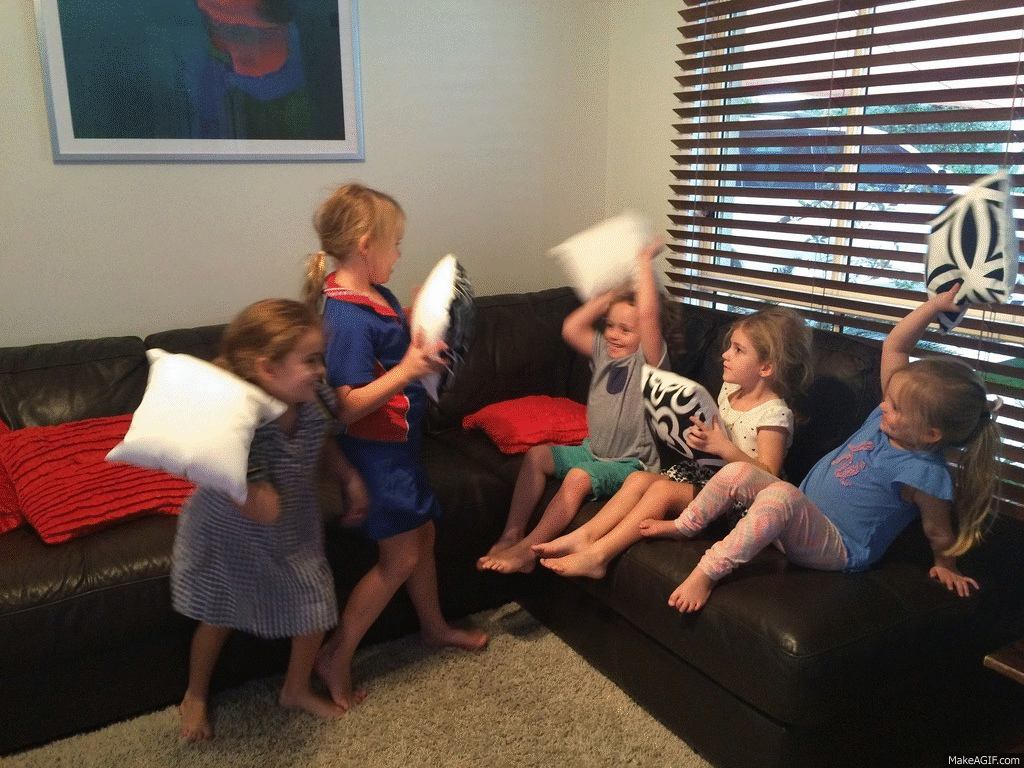
I don’t know about you, but I know I sure could use a play-by-play on How to Keep Your Child Safe at a Sleepover. Hence this article!
If your child has never been to a sleepover before, you might be feeling anxious about their very first one.
First of all, your child will be spending the night at another person’s house.
Second, they’ll be with a number of other children.
Third, there’s no way of knowing how much guidance the other parents will exert.
As anxiety-inducing, as it might be, there are ways you can protect your child.

Whether it’s talking with your child before sending them over for the night, meeting with the other parents ahead of time, or having your child wear a medical bracelet for kids, you can take measured steps to effectively ensure your child remains safe at their sleepover.
How to Make Sure Your Child is Safe at a Sleepover in 8 Steps
1. Make sure your child is comfortable
Take the time to talk to your child before dropping them off for the night. This might not sound like much, but it’s an important step, both to maintain a sincere level of communication between the two of you and to determine whether or not they’re ready to spend the night.
If they already have issues sleeping, such as bedwetting or sleepwalking, it might not be time for them to spend the night.
If you don’t think they’re ready, consider letting them stay late—letting them stay until that household’s bedtime and then picking them up so they can sleep at home. But if they’re adamant about spending the night, consider having a test sleepover beforehand. This could be them sleeping over at their grandparents’, cousins’ or another family member’s home.

2. Talk to the parents hosting and those with kids attending
Part of guaranteeing that your child is safe involves having open discussions with other adults who will be watching over them. In the case of a sleepover, that will involve talking to the hosts.
You should already try and be on a personal level with them, as you want to make sure you can easily communicate in the event anything happens. But don’t try to be overbearing about it. Rather, ask to have them over for a drink so you can get to know one another.
Further, you could suggest having all of the parents meet for a drink when dropping off your kids. While they go off to play outside or downstairs, you can all get to know one another. Not only can it be reassuring, but it could lead to potential friendships and future sleepovers!
3. Talk rules with other parents
While talking with the hosts, consider talking rules. This involves getting to know what rules they’ll invoke in their home, from when kids will be going to sleep to how much freedom they have—as in, how much guidance the parents will have throughout the night.
In other cases, you might also be interested in what they have planned for activities as well as what food and snacks they’ll have out.
The latter will be most important for any parents who have a child with food allergies. Informing the host parents will make it easier to provide safe food options that meet the needs of all the children in attendance.

4. Talk about supervision
The level of supervision needed will depend on the age of the children. For younger children, it will be important for the host parents to enforce particular rules to maintain oversight. That means having a clear “lights out” policy to make sure they’re not watching online videos they shouldn’t be.
For teenagers, rules can be expected to be more relaxed.
However, it’s still a good idea to ask for some supervision, whether that includes watching out for what they’re doing throughout the night to making sure that they don’t have access to alcohol or legal drugs within the home.
5. What are the safety policies in their home?
This is a simple one that you should immediately discuss with fellow parents.
- What are the safety policies in their home?
- Do they leave their pool uncovered at night?
- Do they have a carbon monoxide monitor?
- Do they have a fire extinguisher in the home?
- Do they have firearms, and are they locked in a specific gun case—which none of the children can access?
You can determine whether it’s safe for your child to go over and spend the night based upon the family’s in-home safety policies.
6. Talk about basic manners with your kid
Let’s be honest: When you send your child somewhere, the way they act is a reflection of you.
You’ll want to make sure that they act on their best behavior not only for their sake but for the sake of yourself and for the parents whose home they are entering.
Make sure your child knows to act accordingly. That means respecting the house rules, the family’s property, the parents, and the other children in attendance.
There’s no reason for them to act disrespectfully, but make sure they know to still have fun. Just set limits for how they should act in someone else’s home.

7. Does your kid have an allergy or a medical condition?
You’ll want to make sure your child wears an allergy bracelet for kids if they have an allergy. Whether it’s food, medical or animal-based, the host parents can act accordingly based on your child’s allergies.
It might not sound like much, but it can act as an important reminder if they ever need it.
Further, they can consult it if the child is having some issues, whether they need to ask for your EpiPen or they need to call 911 for assistance and want to correctly inform the arriving EMTs.
8. Give your contact info to the hosting parents
This is one of the simplest ways to ensure your child remains safe. The hosts should have your contact information, as they should be able to reach you in the event that something happens to your child.
No parent wants their child to get hurt or to have a medical emergency, but you need to act immediately in the event that something happens. Make sure your contact information is on hand to keep your child safe.
You can’t guarantee your child will remain 100 percent safe, but you can do all you can to prepare them and the hosts. But most of all, at the end of the day, make sure your child has some freedom.

You need them to remain safe, but you need your child to explore and learn about their own boundaries, too.







